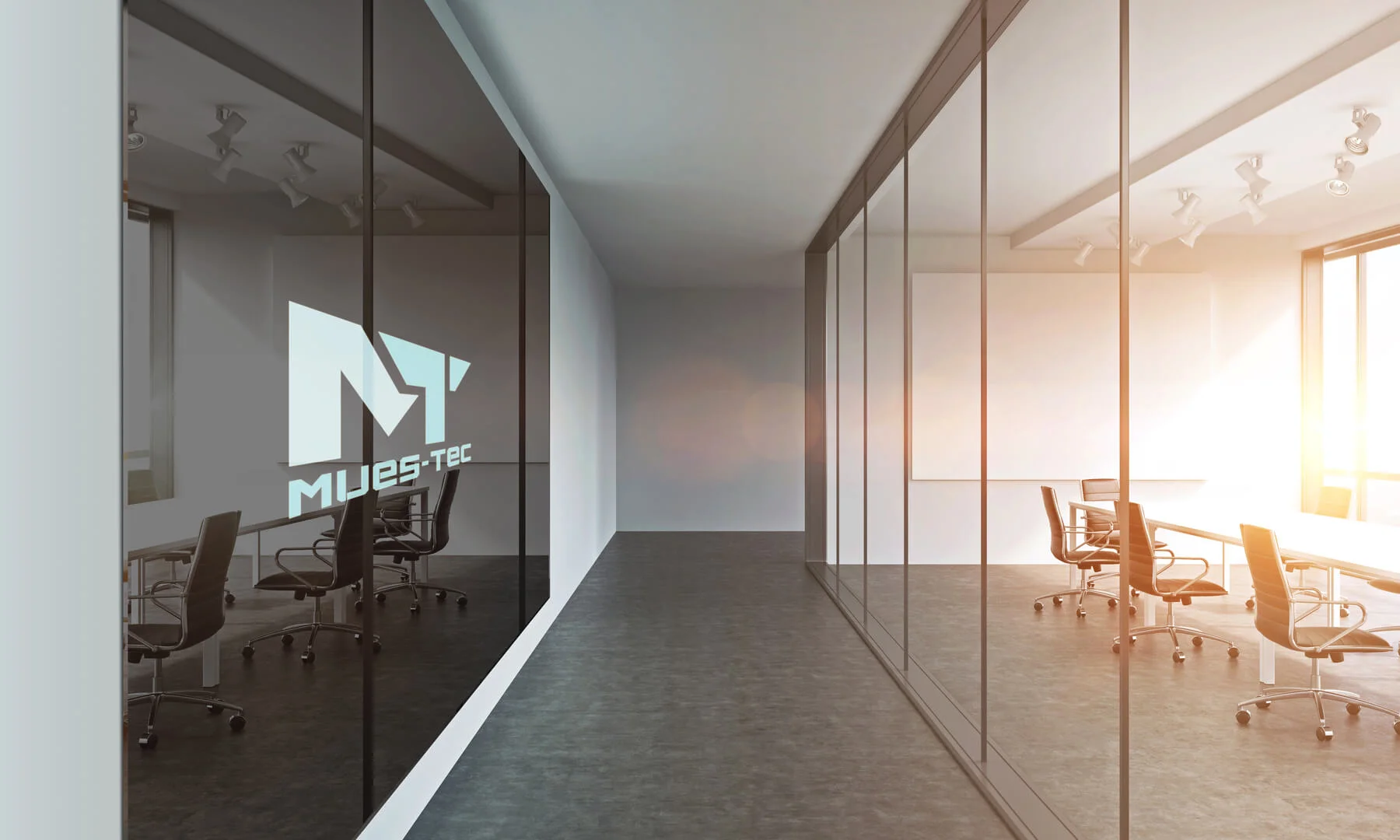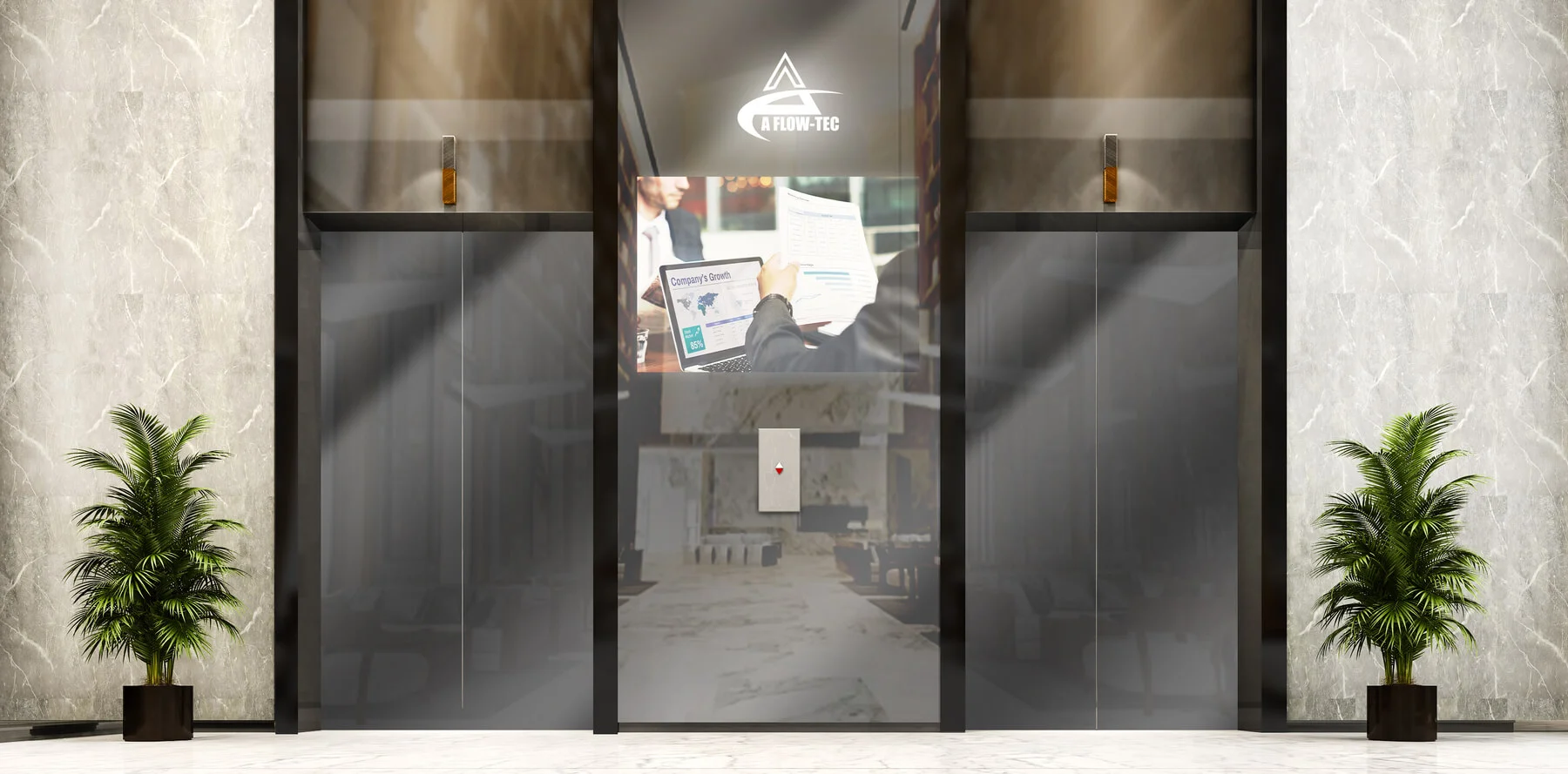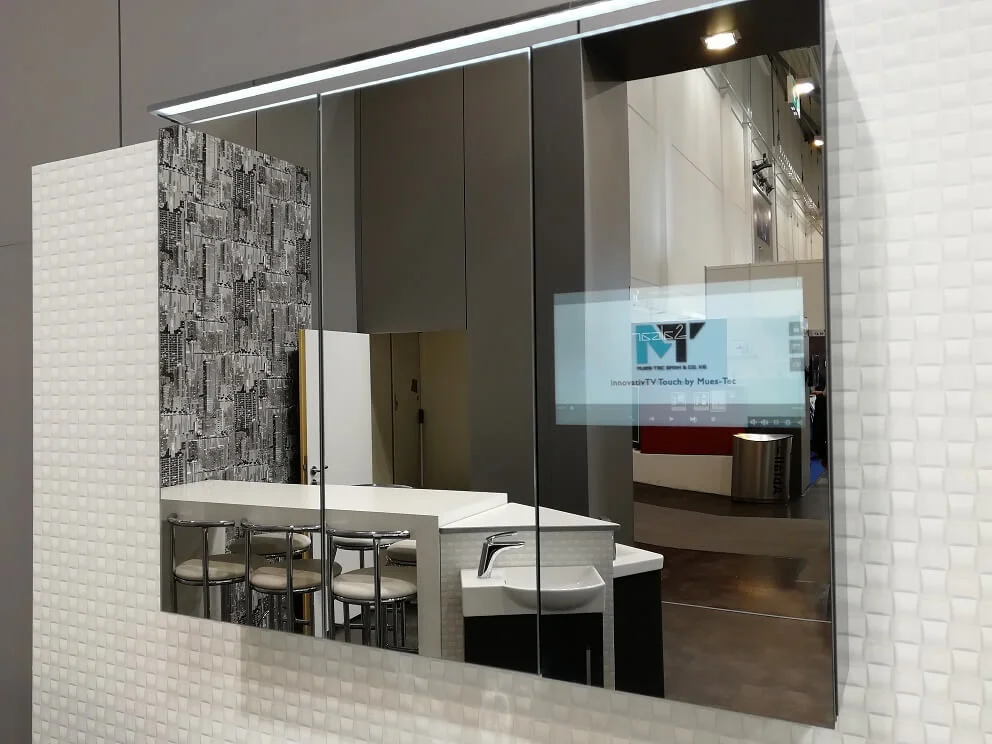Corporate Digital Signage Displays: Enhancing Engagement Across Workspaces
September 4, 2025
Table of Contents:
- Corporate Digital Signage Software & Platform Integration
- Core Capabilities of a Smart Signage Platform for Offices
- Benefits of Smart Display Mirrors in Office Environments
- Interactive Corporate Digital Signage and Context-Aware Messaging
- Implementing the Best Corporate Digital Signage Strategy
- Conclusion
- FAQ
Corporate digital signage displays are increasingly used in professional environments to deliver targeted, real-time information across offices, departments, and shared spaces. These systems now extend beyond basic screen networks, incorporating smart display technologies that allow for advanced integration with enterprise software and data systems.
Smart digital displays by Mues-Tec support structured content delivery, enable automation, and adapt to contextual needs within the workplace. Their implementation enhances the visibility of internal communications, operational metrics, safety information, and corporate messaging without disrupting architectural design or workflow.

Corporate Digital Signage Software & Platform Integration
Mues-Tec’s solutions are designed with seamless integration in mind, offering compatibility with leading CMS platforms while allowing businesses to customize content flows, data integrations, and access controls.
These displays serve as intelligent endpoints within a networked infrastructure. They don’t just display static messages — they deliver dynamic, real-time data pulled from enterprise systems. Whether synchronized with HR platforms, BI dashboards, or event calendars, Mues-Tec corporate digital signage displays support both content automation and on-demand control.
Core Capabilities of a Smart Signage Platform for Offices
Key features that support enterprise-grade deployments include:
- Multi-zone content scheduling and conditional logic for targeted messaging.
- Role-based permission models to maintain governance.
- Integration APIs for data sources such as employee portals, safety alerts, or KPI dashboards.
- Real-time preview, performance analytics, and remote content triggering.
Smart signage ecosystems require architectural flexibility. Mues-Tec displays support cloud-based CMS platforms but also integrate seamlessly into secured, on-premises networks. Hybrid deployments are increasingly popular, combining centralized control with local resilience.

Benefits of Smart Display Mirrors in Office Environments
Digital signages offer unique value in corporate settings. These displays function both as high-end design pieces and digital information surfaces, creating a subtle but high-impact experience for employees and visitors alike. They’re ideal for executive offices, reception areas, and restrooms or lounges, where they discreetly deliver information while enhancing the space visually.
Unlike traditional screens, smart mirror displays blend into interior design and deliver content only when needed. This leads to higher design harmony, increased touchpoints for communication, and better overall employee engagement. By integrating data feeds and contextual logic, these displays maintain relevance throughout the workday.
- Design Integration. Smart mirror displays seamlessly merge with interior architecture, providing digital functionality without disrupting visual aesthetics.
- Dual Functionality. They serve both as mirrors and as digital communication tools, offering practical utility alongside informational content.
- Discreet Communication. These displays are ideal for conveying updates, metrics, or messages in a subtle, non-intrusive manner.
- Space Optimization. By embedding communication into everyday surfaces, businesses can deliver content without requiring additional screen real estate.
- Enhanced Brand Perception. The use of corporate digital signages signals technological sophistication and attention to workspace design, reinforcing brand identity.
Smart display mirrors deliver an effective combination of utility, discretion, and visual appeal. They are a practical solution for organizations aiming to modernize their workplace communications without compromising design integrity.

Interactive Corporate Digital Signage and Context-Aware Messaging
Mues-Tec smart displays support multiple engagement modalities to enhance internal communication. Unlike traditional signage, they respond to environmental cues and user presence, transforming corporate communication into a personalized experience.
Beyond interactivity, smart displays from Mues-Tec offer adaptive messaging capabilities. Content can be personalized by department, time of day, or user behavior. For instance, operational KPIs might be shown in production areas during shifts, while HR or internal news could appear in lounges. This ability to match content to audience context significantly increases relevance and attention.
In hybrid or flexible work environments, where employees may rotate locations, this contextual awareness ensures that digital signage remains valuable and responsive rather than repetitive or generic.

Implementing the Best Corporate Digital Signage Strategy
Smart displays require thoughtful planning for installation, especially when embedded into architectural elements. Mues-Tec’s product line supports flush-mounting and is designed with seamless integration in mind — from power delivery to cable management.
Whether for new builds or retrofit projects, Mues-Tec displays offer connectivity via Ethernet, Wi-Fi, and Power over Ethernet (PoE). Devices also support local caching, ensuring functionality even during network interruptions.
Enterprise scaling capabilities:
- Configuration cloning enables standardized deployment across locations.
- Group-based device management simplifies large-scale content rollout.
- Centralized CMS synchronization ensures brand consistency.
In multi-site environments, consistent branding and communication can be maintained through centralized CMS systems. Mues-Tec supports bulk configuration and group-based content deployment, enabling faster scaling across locations and reducing operational complexity.
Conclusion
Smart digital signage displays, particularly those engineered by Mues-Tec, redefine how corporations communicate within their spaces. These aren’t traditional screens — they’re intelligent visual endpoints that bring data, design, and interactivity into harmony.
From seamless integration with enterprise platforms to durable, design-focused hardware, Mues-Tec products support the evolving demands of modern workplaces. As organizations prioritize agility, engagement, and brand consistency, smart displays will continue to play a central role in workspace transformation.
For decision-makers seeking a future-ready communication infrastructure, adopting corporate digital signage solutions built around smart digital displays is not just a trend — it’s a strategic necessity.
FAQ
What is the main benefit of using smart digital signage in corporate offices?
Smart digital signage enhances internal communication by delivering real-time, targeted content to employees and visitors. It supports operational efficiency and improves the workplace environment through visually integrated, context-aware displays.
How do smart displays differ from traditional digital signage?
Smart displays offer features such as sensor-based interactivity, data integration with enterprise platforms, and adaptive content delivery. Unlike passive screens, they respond dynamically to users and environmental conditions.
Where are smart mirror displays most effective in an office setting?
They are ideal for executive areas, reception spaces, lounges, and restrooms — anywhere design and discretion are prioritized alongside communication needs.
Can smart signage be managed remotely across multiple locations?
Yes. Most enterprise-grade systems, including Mues-Tec displays, support centralized CMS control, remote diagnostics, and multi-site deployment features for consistent branding and management.
Are Mues-Tec smart displays compatible with existing enterprise software?
Yes. Mues-Tec displays are developed for seamless integration with tools like Microsoft 365, Google Workspace, and custom enterprise systems via API.
Do smart displays support interactive features?
Many Mues-Tec smart displays include touch capabilities, QR code extensions, and proximity-based activation to enable user engagement and data capture.
Recent articles
December 21, 2025
Smart Mirror for Wellness Centers: Designing Spaces That InspireDecember 17, 2025
Mirror TV for Business: Innovative Display Solutions for Modern SpacesDecember 12, 2025
Best Smart Makeup Mirrors in 2026: Comparing Quality and Functionality